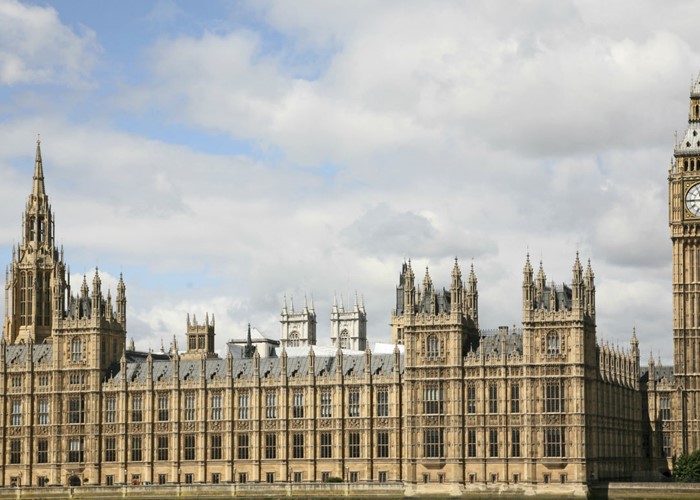What the Royals cost us

Like her subjects, the Queen has announced that she'll have to make do and mend as the Royal finances are squeezed by the UK budget crisis - but how much do the Royal Family actually cost us each year? And what do we get in return? Find out
We’re all feeling the pinch as the credit crunch gives way to the new age of austerity - and even the Queen isn’t immune to the economic downturn. In last month’s Budget Chancellor George Osborne announced that the Civil List - the Government’s financial package that funds the Queen’s official duties - would be frozen at £7.9m for the current financial year.
Yet that doesn’t tell the whole story - the amount provided by the Civil List has actually remained unchanged since 1990. In real terms, the value of the payment has fallen by 76% over the past 20 years - yet the Royals haven’t been forced to send their crowns to “cash for gold” services or ditch the Daimlers for public transport.
So how much are they setting us back every year? And where’s the rest of the money coming from?
How the Royals receive it
Accounts published this month in the Royal Household’s annual report go some way to answering the questions. In the year ending March 31 the Royals cost us a total of £38.2m - which equates to 62p per person in the UK. In addition to the £7.9m from the Civil List, the Queen drew an extra £6.5m from a reserve fund built up over the years by saving portions of her allocated budget.
That adds up to £14.4m - so where did the remaining £23.8m come from? The report shows that the Queen received £19.7m in additional Government grants, including a £15.4m payment towards the upkeep of the Royal residences, £3.9m in travel expenses and a further £3.9m for related costs met by Government departments. The remainder comes from annuity funds.
It should be noted that these grants and taxation funds are supplemented by the Royals’ own money-making activities. The Royal purse received £3.6m last year in management charges and rent from properties let out commercially on Crown estates, while revenue from admissions to the Royal palaces and estates raised a further £1m.
The report also notes that the Queen and Prince Charles fund part of their official duties with income from the Duchy of Lancaster and the Duchy of Cornwall (i.e. real estate) respectively - but no figures are disclosed.
How the Royals spend it
The annual report shows that the Royal Family has actually been cutting its cloth to meet the straightened times. Total expenditure was down more than £3m from the previous year with significant savings made to the Royal travel bill (down 40% from £6.5m to £3.9m) and to the sum set aside for maintenance projects, which was cut by £500,000.
The report shows that the Royals have gone some way to embracing the new mood of austerity - but it also contains evidence of some lavish outlays that will enrage republicans.
Donna Werbner explains who are the winners and losers in this week’s Budget!
The breakdown of Civil List spending presents a more measured picture. Over the past year, the biggest expenditure for the Royals was staff costs for the Royals’ 1,200 employees at £10.4m, followed by the £3.9m in travel costs outlined above. Some £1.3m was spent on catering and hospitality - including £700,000 on the Queen’s summer garden parties - while housekeeping costs came in at £600,000.
Perhaps the greatest extravagance can be found in the Royals’ £3.9m travel bill. In addition to the eye-watering £1.2m spent by Princes Charles and Andrew on private jets and chartered flights, accounts show that the Queen spent £374,000 on a private jet to the West Indies: Charles and Camilla’s trip to the Vatican last spring cost £85,700: and the £32,000 spent on the Queen’s visit to the Heinz factory in Wigan.
What we get in return
It’s hard to put a specific figure on the return we get from the Royals. Supporters of the Monarchy point to the unquantifiable, but enormous, boost to UK tourist revenue the Royals generate. It’s also claimed that state costs for the Monarchy are lower than those for Republics like France and the US - but because the Royals have no administrative function, this makes for an “apples and oranges” comparison.
What we do know - but again, can’t ascribe a monetary value to - are the civic duties the Royals perform every year. The annual report shows that the Queen performed 359 official engagements last year (including 75 with the Duke of Edinburgh), including 27 Royal Investitures and seven large-scale garden parties. Prince Andrew also works as an official trade envoy to the Middle East - and his efforts are said to bring in contracts worth significant sums.
Finally, there is the revenue from the Crown Estates to factor in - last year saw the Royal property portfolio return £226.5m to the Treasury in the form of an income surplus. And that means tabloid suggestions that the Queen may go bankrupt when her reserve fund runs out in 2012 are more than a little wide of the mark...
And remember – if you’re spending like a minor Royal you can regain control of your finances with our online banking tool and make major savings by making it your goal to manage on a small budget.
Comments
Be the first to comment
Do you want to comment on this article? You need to be signed in for this feature